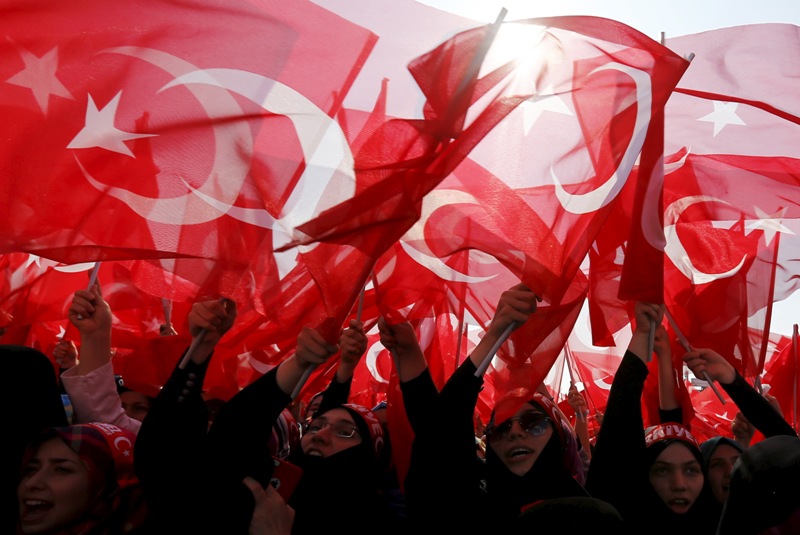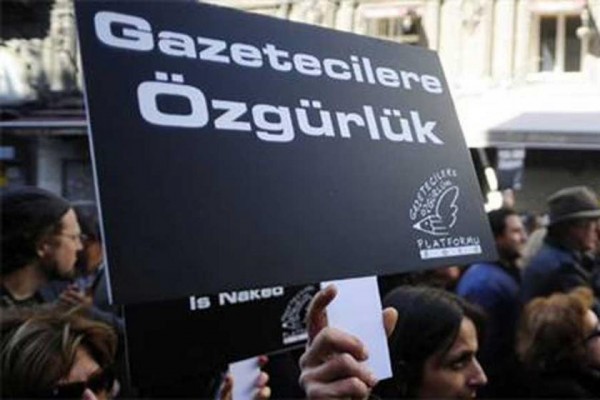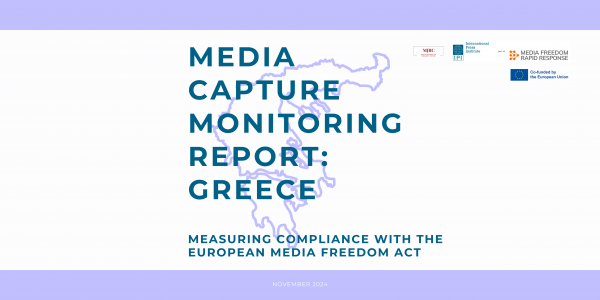Turkey’s worrying press freedom atmosphere took a disturbing turn for the worse this morning as a series of increasingly troubling incidents targeting journalists and media in the last 30 days culminated in the brutal beating of a newspaper columnist outside his home.
Hürriyet newspaper columnist Ahmet Hakan and his bodyguard were attacked shortly after midnight in Istanbul’s Nişantaşı neighbourhood by four men in a black Honda as Hakan was returning home from the studios of CNN Türk, where he hosted a program.
The attack left Hakan hospitalised with broken ribs and a broken nose. Four suspects taken into custody claimed that the attack was the result of a traffic-related quarrel, but video footage indicated that the assailants had been following Hakan’s car since he left CNN Türk’s studios.
The International Press Institute (IPI) and the South East Europe Media Organisation (SEEMO) condemned the attack, saying that Turkish authorities desperately needed to take immediate measures to protect journalists’ ability to report freely in advance of parliamentary elections scheduled for one month from today.
“It is hard to accept that the savage beating of Mr. Hakan – just weeks after a columnist with pro-government media impliedly threatened him with death – is a coincidence,” IPI Director of Advocacy and Communications Steven M. Ellis said today. “That is doubly true given the series of violent attacks and bogus criminal cases targeting journalists and media outlets in September.
“If Turkish officials want the results of the Nov. 1 elections to be viewed as legitimate, they need to take immediate steps to protect journalists from violence and to end these abuses, which appear designed to deprive Turkey’s voters of the ability to make an informed decision about their future.”
As the upcoming election looms, the last month has seen a disturbing number of incidents of harassment and intimidation targeting independent media – incidents that are each disturbing in their own right but which collectively bode ill for the health of the country’s democracy.
Hakan himself has been targeted by politically motivated threats, most notably from pro-Justice and Development Party (AKP) columnist Cem Küçük. On Sept. 9 in a column in pro-government newspaper Star, he accused Hakan of spreading propaganda for the outlawed Kurdistan’s Workers Party (PKK), which has been engaged in a series of deadly clashes with Turkish government forces. Küçük also warned Hakan: “We could crush you like a fly if we want. We have been merciful until today and you are still alive.”
That threat came on the heels of two violent attacks on the offices of Hürriyet by club-wielding, stone-throwing AKP supporters. On Sept. 6, a mob attacked the newspaper after AKP supporters, including one MP, claimed it misquoted President Recep Tayyip Erdoğan. Police on hand reportedly failed to immediately intervene. Some 11 people were detained in connection with the attack, but they were later released.
The scene repeated itself on Sept. 8 in a night that saw violent demonstrations by nationalists across Turkey after 14 police officers were killed in a PKK bombing. To date, no one faces charges for those incidents. Instead, prosecutors opened a criminal case targeting Hürriyet, claiming that the daily’s reporting of Erdoğan’s remarks insulted him and “twisted [his] words to conduct a perception operation” against him.
Amid deadly clashes between Turkish government forces and the outlawed Kurdistan’s Workers Party (PKK), and Turkey’s participation in the international fight against the Islamic State group, the atmosphere in the country has taken an increasingly explosive turn, with Erdoğan lending a very public face to the extensive crackdown on opposition media and critics.
The crackdown began in earnest on Sept. 1, when agents from Turkey’s Financial Crime Investigation Board (MASAK) raided the Ankara offices of 23 companies owned by the Koza Ipek conglomerate over allegations that it supports Erdoğan’s ally-turned-nemesis Fethullah Gülen, a Muslim cleric. The government labelled a movement headed by Gülen a terrorist group after Erdoğan claimed it fabricated a 2013 graft probe, since suppressed, that implicated top AKP members and supporters. The raid was widely seen as an attempt to pressure Koza Ipek to prevent its media holdings from criticising the AKP ahead of the upcoming election.
Efforts to silence critical media became even more ridiculous in September with two high-profile terrorism cases. In the first, authorities accused journalist Cüneyt Özdemir of supporting terrorism because a woman he interviewed in February who had been imprisoned in connection with the Gezi Park protests of 2013 joined the PKK months after the interview aired. Özdemir, pointing out the absurdity of the case, noted that he has interviewed approximately 12,000 people in his career, but has never before faced charges over crimes any of those people may have gone on to commit.
In a second case, authorities raided the offices of the magazine Nokta and seized all copies of an issue that contained a photo montage on its cover featuring a grinning President Erdoğan taking a “selfie” in front of a coffin of a soldier killed during clashes with the PKK. The raid was initially authorised on grounds that the cover violated a law specifically protecting Turkey’s president from insults, but in order to justify the seizure, prosecutors added a handwritten note to charging documents accusing the magazine of “propagating terror”. Nokta Editor-in-Chief Cevheri Güven noted that the move showed effectively showed that “insulting the president is [now] accepted as a terrorist crime“.
Turkish journalists have frequently been targets of politically motivated probes related to their work, but the number of criminal cases under the law that prohibits insulting the president have exploded since Erdoğan was sworn into office last year, with many coming the last 30 days. Two weeks ago, veteran journalist Hasan Cemal was summoned before prosecutors over his column “The Sultan in the Palace is culpable for the bloodshed”. The columnist noted that “journalists have been through hard times thus far with juntas, military coups, state of emergency, martial law”, but he said what hurt most was that it was the first lawsuit he had faced since a military coup that took place in March 1971.
Other journalists that have faced criminal charges and potential prison sentences for “insults” to the president in September alone include Aytekin Gezici, Ahmet Altan, Gültekin Avcı, Osman Özsoymore, and Levent Kenez.
Authorities have also set their sights on representatives of foreign media outlets, particularly those reporting on the clashes with the PKK in Turkey’s southeast. On Sept. 1, they deported two British VICE News journalists Jake Hanrahan and Philip Pendlebury, who were arrested with fixer Mohammed Ismael Rasool on accusations of supporting terrorism. As evidence, prosecutors pointed to Rasool’s use of an encryption system to protect sources and communications, noting that militants from the Islamic State group have also used that system. Despite Hanrahan and Pendlebury’s deportation, Rasool remains behind bars to this day, one of dozens of journalists Turkey is currently holding.
Less than a week later, Dutch journalist Frederike Geerdink was detained and accused of aiding Kurdish militants. The journalist, who has spent years covering Kurdish issues in Turkey and reports for Britain’s Independent as well as Dutch radio and newspapers, was deported under a rule that allows foreigners suspected of wrongdoing to be expelled.



